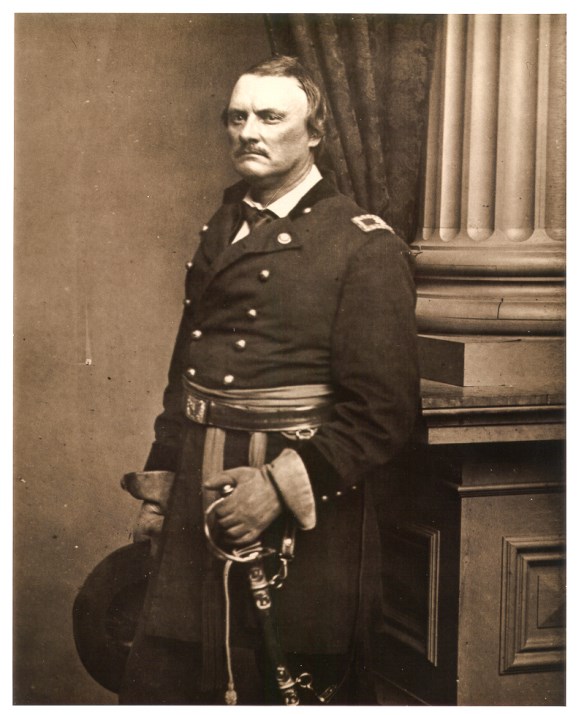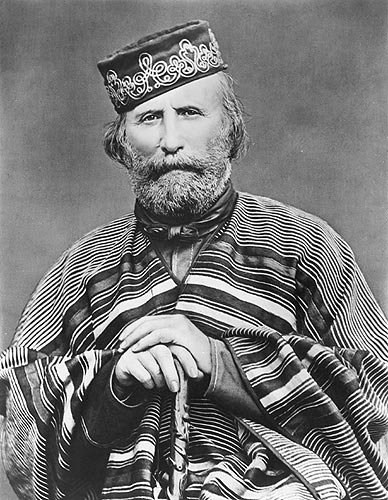Last updated: October 30, 2020
Article
Six Unusual Abraham Lincoln Facts and Rumors, Part II

Library of Congress
- Abraham Lincoln was an enthusiast of General Zachary Taylor.
Zachary Taylor would only serve for a brief sixteen months as President of the United States until his untimely death. On July 4, 1850, after consuming large quantities of green apples and cherries with cold milk on a hot day in Washington, he became severely ill with gastroenteritis. He became progressively worse until he died on the night of July 9, 1850. Before his death, it is said his last noble words were, “I have always done my duty. I am ready to die. My only regret is for the friends I leave behind me.”
Before he was president, he led a distinguished career as a general in the Mexican- American War. He delivered crushing blows to the Mexican Army at the battles of Palo Alto, Resaca de la Palma, Monterrey, and Buena Vista, gaining him national fame. Taylor was endeared to his men and junior officers for his modest attitude, fortitude, selflessness, and care for their welfare that also transcended to the public. His name became linked to George Washington and Andrew Jackson, viewed as a man of the people who took up the sword to protect the freedom of all Americans.

Library of Congress
- Abraham Lincoln considered two promising candidates for command of the Army of the Potomac before the battle of Gettysburg in 1863.
It took President Lincoln until 1864 to find the right commander to lead his Union armies. Is it possible he had the opportunity to select an efficient leader beforehand? The unsuccessful generals appointed to high command in the East Theater of the war read like a laundry list (McDowell, McClellan, Fremont, Banks, Pope, Burnside, and Hooker). Listed below are two possible candidates rumored to have been offered command of the Army of the Potomac, both killed before the end of the war.
Major General John Fulton Reynolds (1820-1863)
Admiring Reynolds after the war, General Winfield Scott Hancock noted that, “I may take this occasion to state that, in my opinion, there was no officer in the Army of the Potomac who developed a character for usefulness and ability, in the highest grades of command, superior to that of General Reynolds, and had he lived to the close of the war he would most probably have attained the highest honor in that army.”
Reynolds graduated from the United States Military Academy in 1841, and later served in the Mexican-American War. He was brevetted to captain for gallantry at Monterrey and Buena Vista. By 1863, the “soldier general” had risen through the ranks of the Army of the Potomac to the command of the First Corps.
Following the defeat at Chancellorsville in 1863, President Abraham Lincoln contemplated the removal of Major General Joseph Hooker, the current commander of the Army of the Potomac. On May 31, Reynolds, whom Hooker described as “the ablest man officer under me,” took leave and travelled to Washington to discuss the leadership of the Army of the Potomac with Lincoln. He was most likely selected to meet with Lincoln due to his high esteem among his colleagues, and his reputation for staying out of politics. When bluntly asked by Lincoln if he would be interested in command of the Army of the Potomac, Reynolds made it apparent that unless he was given free rein from political control, he would prefer to decline. Unable at the time to comply with his demands, Lincoln reluctantly ordered the recommended choice of Reynolds, General George G. Meade, to replace Hooker on June 28.
On the morning of July 1, 1863, Reynolds was commanding the “left wing” of the Army of the Potomac, on its march toward Gettysburg. He was supervising the placement of the Second Wisconsin Regiment, when a rebel bullet smashed into the back of his head, killing him instantly. When Meade heard of the death of Reynolds, he was almost brought to tears. It is fascinating to wonder how history may have been altered if the aggressively-minded Reynolds had been in command of the Army of the Potomac following the defeat of General Lee at Gettysburg.

Wikipedia
Major General Israel Bush Richardson (1815-1862)
Israel Richardson graduated in the same West Point class as Reynolds, the class contributing twenty-three generals to the war. He served in both the Seminole Indian War in Florida and the Mexican-American War. He earned the nickname “Fighting Dick” during the Mexican-American War for his fortitude in battle. Richardson, also a “soldier’s general” had risen from regimental command to division command by 1862. He was said to have a voice that “rang out above the shrilling of trumpets.” While in battle, he was remembered to have “went under fire with as much nonchalance as ordinary people go to breakfast.”
During the battle of Antietam on September 17, 1862, Richardson’s division was tasked with breaking the Confederate center at the Sunken Road. While supervising his artillery fire near the front, he was gravely wounded from an enemy shell fragment.
Following the battle of Antietam, President Lincoln arrived to meet with General McClellan. He was visibly frustrated with the cautiousness McClellan exhibited in following up to destroy Robert E. Lee’s army. The displeased president felt that the Army of the Potomac acted only as “McClellan’s bodyguard.” On October 4, Lincoln made a special visit to the wounded Richardson, who was housed at McClellan’s HQ.
Captain Charles Stuart Draper, one of Richardson’s aides, was also wounded and housed in the same bedroom as Richardson. Draper recalled the conversation that took place between Richardson and Lincoln. He claimed that Richardson spoke to Lincoln on such topics as the future of the nation, and that he gave his opinions on strategy and army personnel. They also spoke on the cautiousness of McClellan. Draper recorded that during their conversation, Lincoln assured Richardson, that if he lived, he would be selected to succeed McClellan in command of the Army of the Potomac.
If Draper’s testimony holds true, Lincoln would have certainly found his “fighting general” as early as 1862. However, on November 3, Richardson died of his wounds. Remarkably, Lincoln waited almost six weeks until the death of Richardson before convincing the timid Ambrose Burnside to take the job. The consequence of this selection ended in the December 13, 1862 battle of Fredericksburg and the useless waste of 12,000 Union soldiers’ lives.

Wikipedia
- President Lincoln offered the Italian revolutionary Giuseppe Garibaldi a field command.
In the summer of 1861, Abraham Lincoln was interested in seeing if the Italian revolutionary leader Giuseppe Garibaldi would be willing to offer his services to the Union cause. Garibaldi would be able to play a critical role in the war effort by helping to “lend the power of his name, his genius, and his sword to the Northern cause.” Garibaldi was internationally known as the “Hero of Two Worlds” taking part in revolutionary movements in South America and Italy. In 1860, Garibaldi had led his “red shirts” in military campaigns on the Italian mainland hoping to initiate the formation of a unified Italy.
Rumors began to circulate in Union newspapers that Garibaldi was on his way to take command of the Union army by 1861. James W. Quiggle, the American consul in Belgium, sent a letter to Garibaldi in June 1861 presenting this interest. He stated that “the papers report that you are going to the United States to join the Army of the North in the conflict of my country. If you do, the name of La Fayette will not surpass yours. There are thousands of Italians and Hungarians who will rush to join your ranks and there are thousands and tens of thousands of Americans who will glory to be under the command of the ‘Washington of Italy.’” Garibaldi politely denied such a claim, but the thought of it appealed to the Italian general.
In the end, Garibaldi’s demands were too much for the Lincoln administration. Garibaldi wanted to be appointed to the supreme command of all the Union armies, ranking even above the aging Lieutenant General Winfield Scott. The Lincoln administration was only willing to offer him the rank of major general. He also demanded that all slaves in North American be immediately emancipated. He desired to wage a war for equal rights in North America. Emancipation was not of primary importance to President Lincoln this early in the war. The love affair between the Italian revolutionary and the American public was not meant to be.
Written by Frank Jastrzembski, Volunteer, James A. Garfield National Historic Site, June 2015 for the Garfield Observer.
